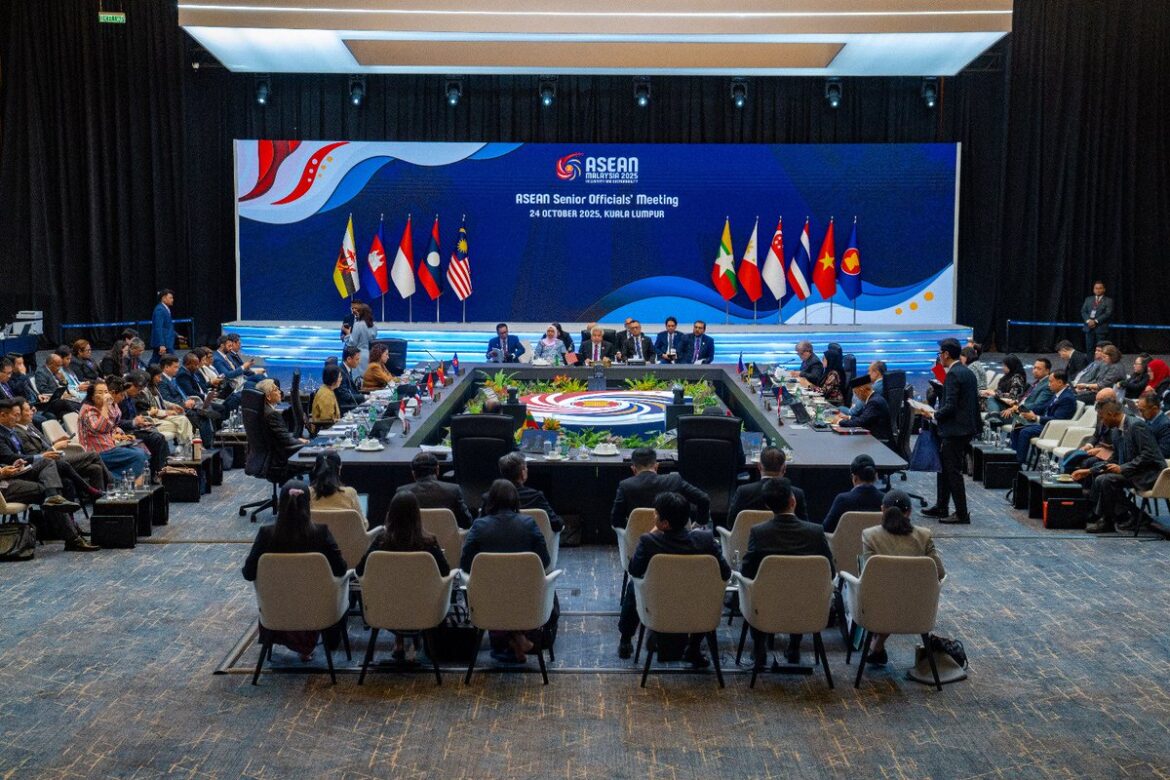Kuala Lumpur, October 27: China on Monday pressed for open trade and deeper regional cooperation at a summit in Malaysia overshadowed by steep U.S. tariffs, as President Donald Trump’s absence from key meetings gave Beijing space to promote itself as the champion of multilateralism.
Chinese Premier Li Qiang urged leaders from ASEAN, Japan, South Korea, and China to “uphold free trade and the multilateral trading system” and to “oppose all forms of protectionism.” His remarks, delivered at the East Asia Summit in Kuala Lumpur, echoed Beijing’s criticism of Washington’s tariff measures.
“We must fully safeguard the hard-earned peace and stability in East Asia,” Li said, calling for stronger economic integration across the region.
While Li and other leaders advanced trade discussions, the United States was represented only by lower-level officials, underscoring a diminished American presence at the forum. Trump had wrapped up a six-hour blitz of meetings a day earlier, overseeing the signing of several trade framework agreements and an expanded ceasefire deal between Cambodia and Thailand, though none of the agreements reduced import tariffs.
Canadian Prime Minister Mark Carney said his government was ready to meet Trump to ease bilateral trade tensions, after a political ad in Ontario drew the U.S. president’s ire. “We stand ready to sit down with the United States when they are ready,” Carney said, adding that he expected to meet Chinese President Xi Jinping at the APEC summit in South Korea this week. Trump, speaking en route to Japan, ruled out a meeting with Carney “for a while.”
Brazilian President Luiz Inacio Lula da Silva struck a more upbeat tone, saying his meeting with Trump “guaranteed” a more favorable trade deal for Brazil, which currently faces a 50% tariff on its exports to the United States.
The China-backed Regional Comprehensive Economic Partnership (RCEP), comprising ASEAN, Japan, South Korea, Australia, and New Zealand, held its first summit since 2020. The bloc, covering roughly 30% of global GDP, called for faster expansion and broader cooperation to counter the effects of U.S. tariffs.
European Council President Antonio Costa said the European Union aimed to finalize trade deals with Malaysia, Thailand, and the Philippines soon, while expressing concern over China’s export controls on critical raw materials such as rare earths. Japan’s Foreign Ministry also criticized China’s curbs, saying they disrupted supply chains and contradicted Beijing’s rhetoric on free trade.
“They try to make use of these U.S. tariff issues to pretend as if they are the guardian of the free trade system,” said Japanese foreign ministry spokesperson Toshihiro Kitamura.
